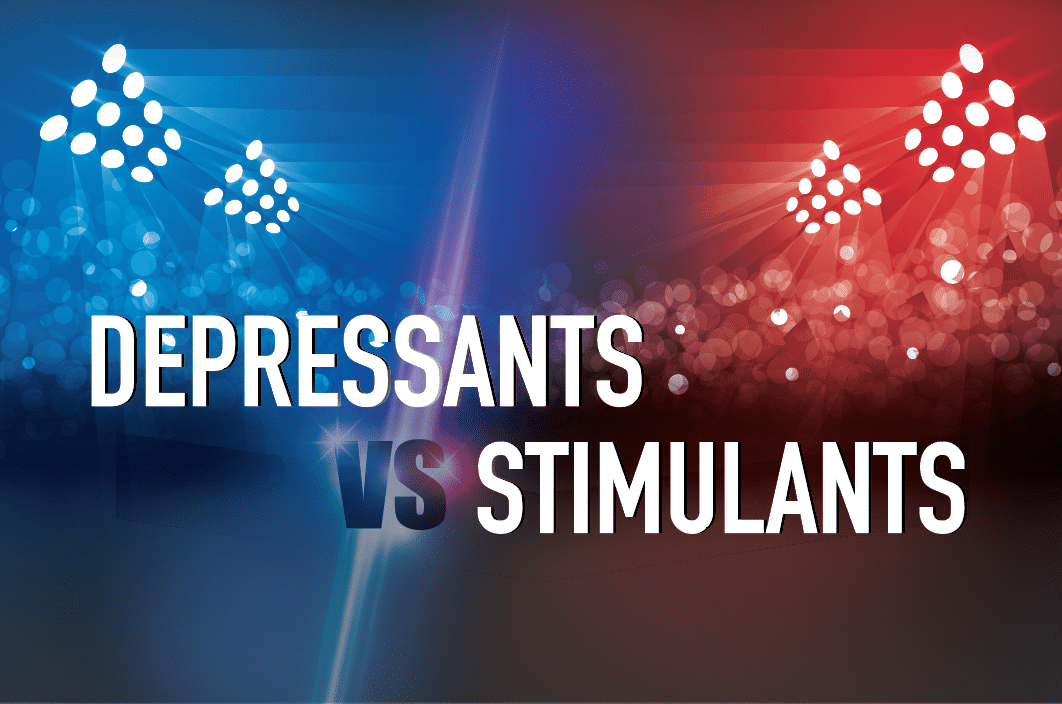
Stimulants and depressants are two broad categories of psychoactive substances that affect the central nervous system, albeit in opposite ways. Understanding the differences between these classes of drugs is crucial for both medical professionals and individuals seeking to comprehend their effects, applications, and potential risks.
Stimulants, as the name suggests, elevate physiological or nervous activity in the body. They typically increase alertness, energy, and cognitive function by enhancing the activity of neurotransmitters such as dopamine and norepinephrine in the brain. Common stimulants include caffeine, amphetamines, and cocaine.
Depressants, on the other hand, have a calming effect on the central nervous system. They reduce arousal and stimulation by inhibiting the transmission of nerve impulses. Depressants often work by enhancing the activity of gamma-aminobutyric acid (GABA), a neurotransmitter that inhibits brain activity. Examples of depressants include alcohol, benzodiazepines, and opioids.
Understanding the physiological effects of stimulants and depressants is essential for comprehending their diverse applications and potential risks.
Recent studies have explored the potential cognitive enhancement properties of stimulants beyond traditional medical applications. Researchers are investigating how substances like modafinil may improve memory, attention, and problem-solving skills, leading to discussions about ethical considerations in the academic and professional settings.
Some stimulants are being investigated for their neuroprotective effects. Preliminary research suggests that certain stimulants may have the ability to protect brain cells from damage and degeneration, sparking interest in their potential applications for neurodegenerative disorders.
As the opioid epidemic continues to pose significant public health challenges, researchers are exploring alternative depressant-based approaches for pain management. Non-opioid depressants, such as certain anticonvulsants and muscle relaxants, are being investigated to address chronic pain while minimizing the risk of addiction.
While not traditionally categorized as depressants, psychedelics like psilocybin are gaining attention for their potential therapeutic applications, especially in the context of depression. Psychedelic-assisted therapy, involving carefully guided experiences with substances like magic mushrooms, is being explored as a novel approach to treating mood disorders.
Researchers are investigating the potential benefits of combining stimulants and depressants in certain medical scenarios. For example, the use of stimulants to counteract the sedative effects of certain depressants, allowing for improved symptom management with fewer side effects.
In the realm of pharmaceutical development, there is growing interest in creating dual-action compounds that incorporate both stimulant and depressant properties. These compounds aim to provide therapeutic benefits without the extreme highs and lows associated with traditional stimulants and depressants.
Advancements in genetics and personalized medicine may play a significant role in tailoring stimulant and depressant treatments to individual needs. Genetic markers could help identify patients who are more likely to benefit from certain medications while minimizing potential adverse effects.
As the field of stimulant and depressant research progresses, ethical considerations surrounding the use of these substances are becoming more complex. Striking a balance between scientific exploration and responsible conduct is crucial to ensure that research aligns with societal values and prioritizes the well-being of individuals.
In the ever-evolving landscape of stimulant and depressant research, staying informed about emerging trends is essential. From potential cognitive enhancements to innovative therapeutic approaches, the boundaries of these categories are continuously expanding. As researchers delve deeper into the molecular and behavioral aspects of these substances, society must grapple with the ethical implications and navigate the complex terrain of responsible use and medical advancement. Whether stimulants or depressants, understanding their multifaceted nature is key to fostering a balanced and informed perspective on their roles in medicine, mental health, and beyond.
Comments